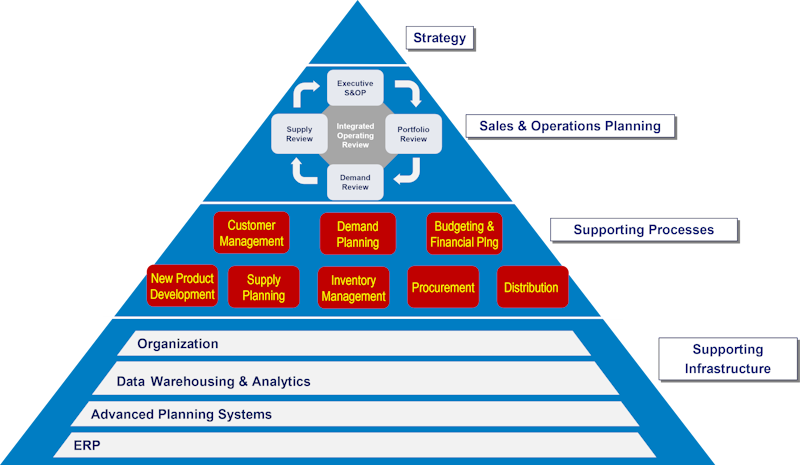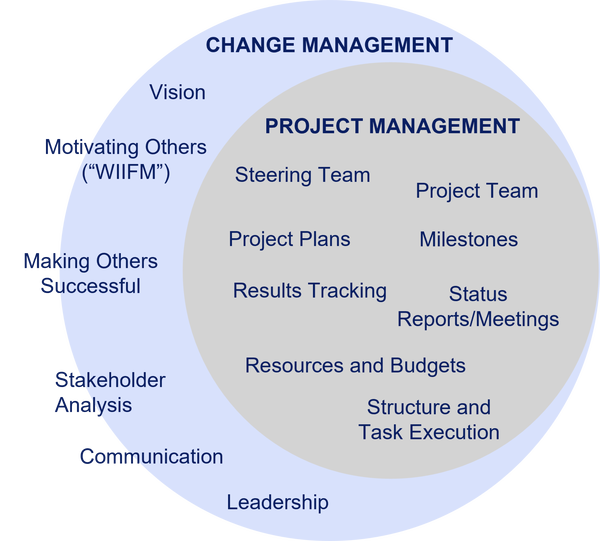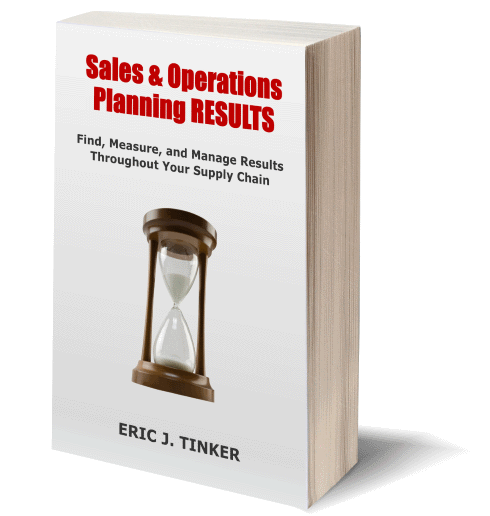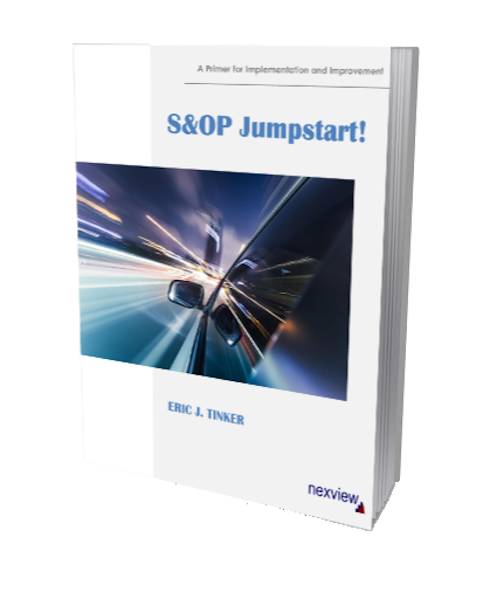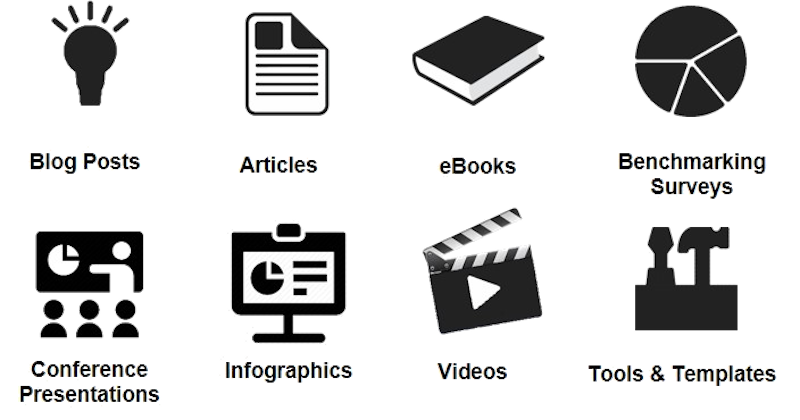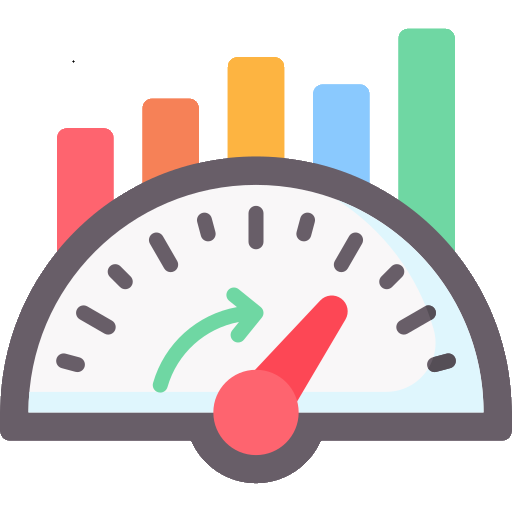Experience and Consistency
Capabilities, Complexities, Cultures, Client Sizes
With a foundation in operational improvement, we started differentiating in Sales & Operations Planning with the founding of the firm in 2009. What we call this (e.g., S&OP, IBP, SIOP) is up to client preference, we build in the same best practices irrespective of the name. For clients, this we means we know what good looks like and the steps to get there for your situation. It’s not too hard to understand the basic component meetings of S&OP, but a design that supports a complex business across regions/cultures, business units, asset structures, differing value chains, variable IT capability, as well as corresponding org and P&L layers is not just the 5 meeting step flow you read about everywhere. Our experience with complexity is a differentiator and our case studies illustrate significant experience with the complexity that global S&OP designs entail.
While our midmarket clients don’t always deal with the complexity described above, they deal with other issues that threaten S&OP success (e.g., resource, process, org, and IT gaps). We’ll see those gaps very quickly and suggest next steps as well as an improvement growth path. In mid-market client environments, we get things done much faster and are well-experienced working within their constraints and budgets to get change and results.
For global corporations selecting a consulting partner – We understand that you often work with the large firm names that make everyone in the board room feel better. We came from there and get it. The question becomes whom are you really going to get on your project? Certainly not the people who were involved in the cases they tout (are these people even still with the firm?). You are going to get who is available along with all the overhead that comes with them. On a large-scale implementation lasting 6-12 months, our prior big Consult-Co firm experience suggests consulting team turnover on these projects is about 50%. Revolving door.
Nexview is different than this. Most of our larger clients have worked with us before, get referred to us, or have just been there/done that with the large firms and now just want to hire the surgeons, not the hospital. We also sometimes come in after the big firm to clean it up.
Experienced Teams
We don’t sell using senior people and then leave junior, inexperienced people to deliver the work. We work in smaller consulting teams with only highly-experienced colleagues from a mature network in the US and abroad. We build project teams for each project, no employees to staff or lay-off, no internal politics, it’s only about your project. We adapt to fit with your in-office/remote work model, but experience tells us that face-to-face remains the most effective, at least in the beginning.
Industries
Having worked across industries for many years, we offer that the differences in terminology or structure of the value chain across industries isn’t the major challenge. This is more about integrating a cross-functional team around a common set of plans, making sure the accountabilities are in the right places, and managing a set of KPIs throughout the S&OP meeting cadence. Please see our industry experience list and case studies for the many industries we’ve done this in.
Non-traditional settings (not traditional manufacturing) – We have become known for our work in non-traditional settings that require adaptation of S&OP principles to fit the business. It’s not cookie-cutter.
Approach
Developed but Flexible
We tailor our baseline components of Assess, Train, Design, Pilot, Rollout, and Sustain/Improve to each engagement and scope that we design with you. We often work with clients in phases such as to course correct as necessary. We have found there are 8 Levers for S&OP PerformanceSM , and we consider these in all our projects.
The need for Assessments
We suggest that Assessments are much more than educating consultants on your business. They align teams around the gaps and produce coordinated messaging and a baseline across the organization. This is the beginning of change management. For larger organizations, we seek to ground an improvement effort in a measured ROI. For more middle market clients, we normally conduct briefer assessments that also include S&OP Readiness for those who are just implementing S&OP.
“Best practices” aren’t always best for everyone
Companies have different value chains, business models, and strategies. We start with and teach best practices, then adapt them as needed for every client. Sometimes the application of best practices comes in phases too. Our case studies show different applications for S&OP, not all used the same “best practices.”
We don’t try to force a square peg into a round hole, just because somebody says it’s a best practice. We keep an open mind to fit your situation.
Process, Organization, and Enabling Technology
We usually work with clients on the items below the S&OP layer as well. These include the supporting planning processes (e.g., demand and supply planning), organization structure/development, and enabling information technology. We are often involved with IT system providers and have expertise in selecting these systems and managing these implementations. Some projects are also more in the supporting items as opposed to full S&OP.
Change Management
We believe change management is comprised of both “hard” (e.g., project and results management) as well as “soft” methods and have a developed toolkit we draw from to fit the project need, size of the business, and culture(s).
We find the highest need for change management and our related methods is in larger organizations, especially when leaders are disbursed throughout the world, have differing views on accountabilities, or are not all aligned on other things. These type of challenges are harder than whatever process or industry nuances may exist, and helping our sponsoring executive and a Steering Team through this is right in our wheelhouse.
Why Nexview?
- Firm experience and senior teams
- Developed, but flexible approaches and the best practices that are right for you
- Ownership with your team, not dependencies on consultants
- Recognized thought leadership
- Wide range of clients across industries
- Track record of measurable results
- Developed change management methods for large-scale change
What will change
- Gaps called out across your organization
- Behaviors at any level that need to change
- Accountabilities defined and implemented at all levels
- KPI management with linkages top to bottom
- Impact measured (full projects)
- Data becomes information
- Visibility and momentum for improvement
- Quick impact with focus on sustainability
- Alignment across your management team
- Team capabilities developed/improved
Industry experience
- Consumer Products
- Chemicals
- Medical Devices
- Pharmaceuticals
- High Tech
- Energy – Upstream and Downstream
- Aerospace
- Automotive
- Construction
- Mining
- Private Equity
- Non-manufacturing
We tailor our baseline methodology to meet project needs

The 8 Levers for S&OP PerformanceSM
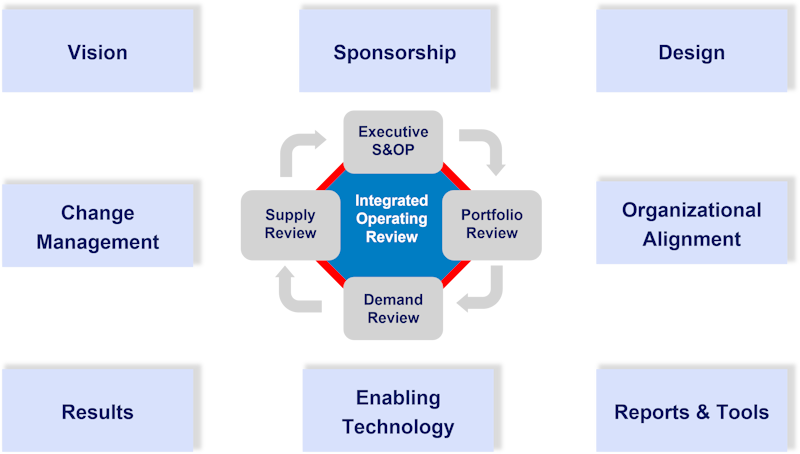
Assessments align the team around a baseline
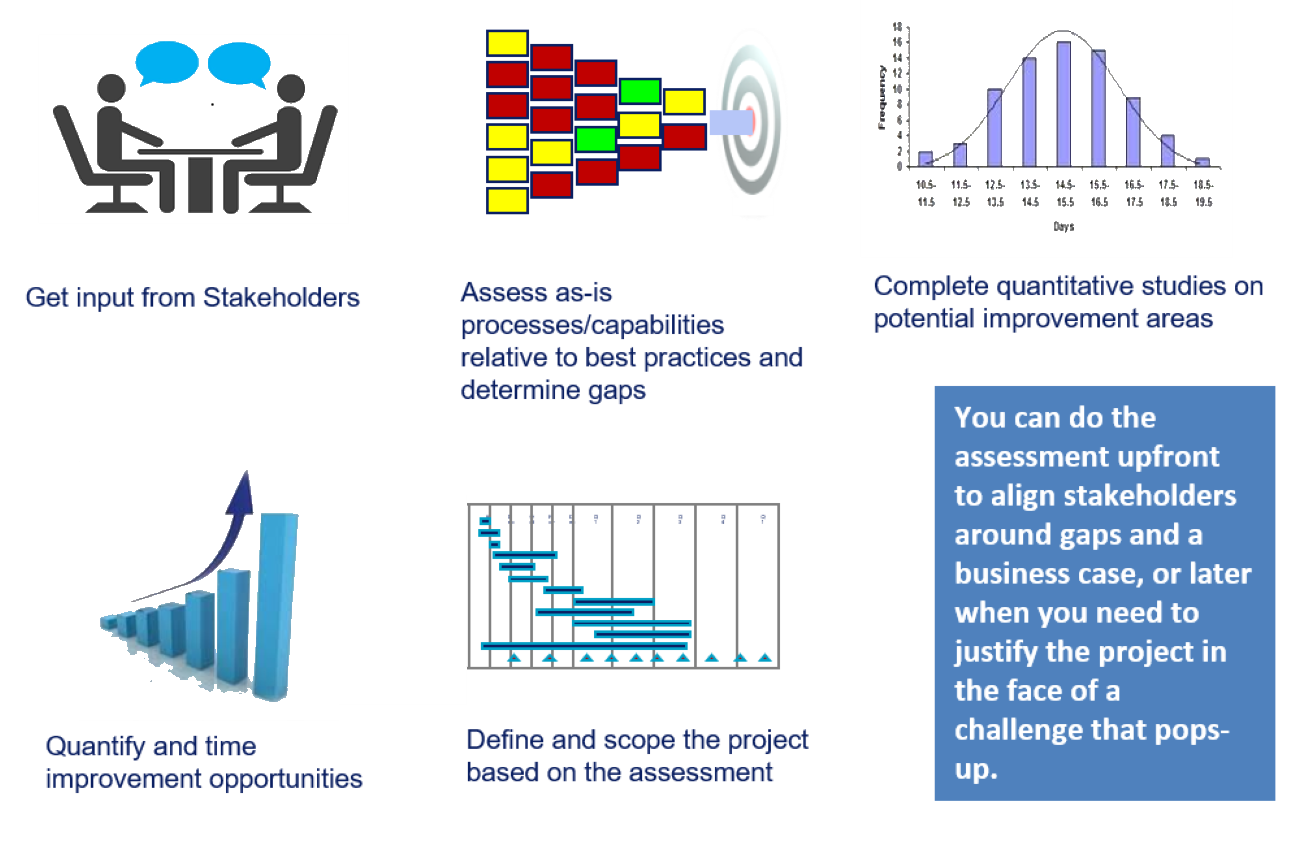
We help clients with S&OP and the supporting processes and infrastructure
